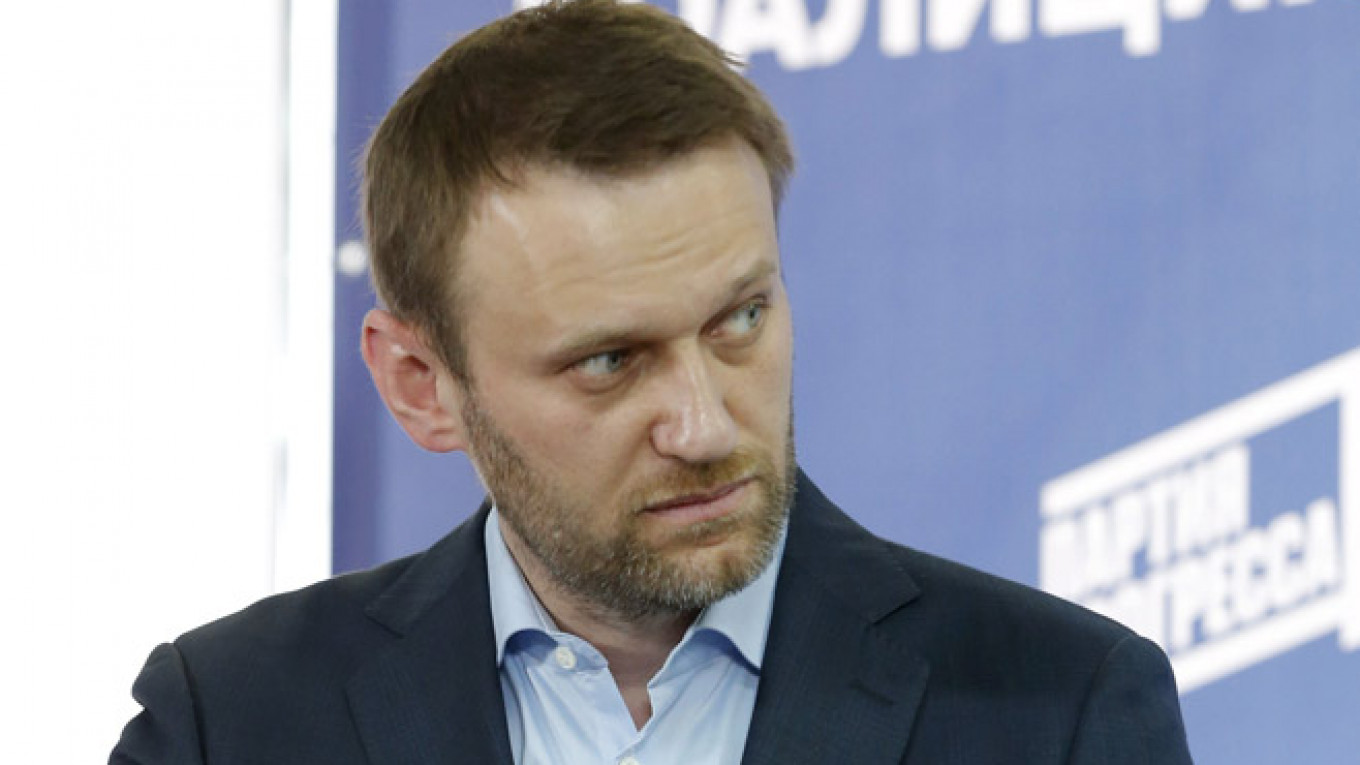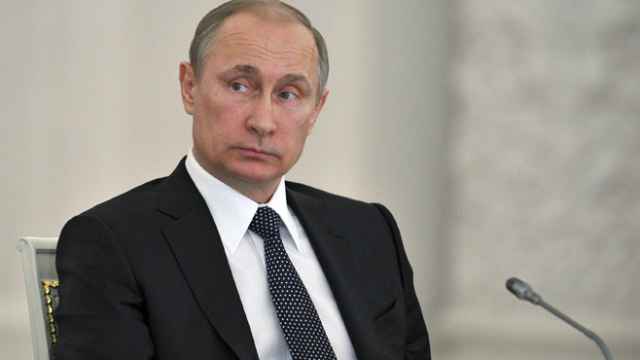An amnesty bill passed by the State Duma in its first reading Wednesday will see up to 60,000 inmates leave Russian prisons, according to government officials, but will exclude numerous entrepreneurs who were put behind bars as a result of unlawful corporate raids and who could contribute to the country's crisis-hit economy if set free.
Moreover, many government officials, judges, prosecutors and investigators who were convicted for giving false evidence, making unjust rulings, obtaining testimony under duress and other crimes that could have been committed against entrepreneurs in order to obtain their property will be amnestied, said Vladimir Osechkin, head of the Gulagu.net community of experts who advocate the broad humanization of Russia's criminal code and penitentiary system.
"The bad guys will be released, while those whom they put in jail will stay there because everybody is afraid that they will get out and claim their expropriated property," Osechkin said in a phone interview Wednesday.
"In the best-case scenario, only 1,500 people will be released from prisons," he said.
The amnesty bill was proposed to President Vladimir Putin by the head of his Сouncil for Civil Society and Human Rights, Mikhail Fedotov, at a meeting with its members last December — a year after the last amnesty.
"I am in favor of an amnesty, but the thing is, for a start, we cannot have these amnesties too often, otherwise there won't be anyone left in the prisons. That's not the issue of course and maybe it would be a good thing if there were no one left there," Putin said at the meeting.
"Imagine that someone has committed a crime and there are victims, and the next day they see that same person walking down the street again. How would people react to this and to our policy in this area? All good things should come in moderation. I support an amnesty, but we need to take a balanced approach," the president said.
Presidential Adjustments
The council, with Osechkin among its experts, then prepared its proposal on the future amnesty, calling for the release of inmates whose crimes did not "cause serious damage to people's lives and health."
The president, however, submitted another bill that specifically excluded people convicted under articles of the criminal code such as large-scale fraud, misappropriation or embezzlement on a large scale and abuse of power with serious consequences — crimes that human rights lawyers say are commonly cited as the basis for locking up the victims of illegal corporate raids.
"We have excluded these crimes because we believe that people convicted of them have done great damage to other people's property," Fyodor Krasheninnikov, head of the State Duma's legislation committee, told The Moscow Times in a phone interview, without elaborating.
One of Putin's most vocal critics, anti-corruption campaigner Alexei Navalny, was given suspended sentences in 2013 and 2014 under the same embezzlement and fraud articles that are excluded from the amnesty.
"I would not say this is targeted specifically against Navalny, because there are many entrepreneurs who are in jail on such convictions," Navalny's lawyer Vadim Kobzev told The Moscow Times.
Great Expectations
A separate amnesty for those convicted of economic crimes was announced in July 2013. At the time, the legislation's initiator, business rights ombudsman Boris Titov, claimed that thousands of the 13,600 people serving time for economic crimes could be released under the amnesty. More than 2,300 were amnestied, but only 58 people were released from jails as a result of it, according to data published on the website of the Federal Penitentiary Service (FSIN) this month. The rest were cleared of their conviction but were serving suspended sentences or other alternatives to jail time.
This time, the government said there was no need to amnesty entrepreneurs as they had already been released under the 2013 economic amnesty, Osechkin said.
"The [attempt to have a] broad amnesty failed: Any entrepreneur can be put in jail in Russia, and the fact that such people weren't covered under the new bill will be a strong signal to those who are thinking about bringing their capital back into the country," Osechkin said.
The upcoming amnesty, which is being held to celebrate the 70th anniversary of the victory of the Soviet Union and its allies in World War II, will affect up to 400,000 people, according to Krasheninnikov, who supported the bill and said its final readings will be held Friday.
According to the bill's text, published on the State Duma's website, the amnesty will apply to those who committed mild or moderately serious crimes and who served in Chechnya, battled terrorists in the North Caucasus or fought in the Afghan war, along with those who helped liquidate the Chernobyl nuclear plant disaster, those who were due to be released within a year and others. In total, it is expected to apply to 60,000 inmates.
In addition, up to 200,000 other people will be amnestied from other punishments such as suspended sentences. Up to 140,000 people currently under investigation could be amnestied before they are even tried in court, Krasheninnikov was quoted by Interfax as saying.
The upcoming amnesty will be Russia's 19th since 1994. Under the last one in 2013, held in celebration of the 20th anniversary of the adoption of Russia's Constitution, 1,132 inmates were released, according to FSIN data.
Ten amnesties have been held since Putin came to power at the end of 1999, with 241,049 inmates released. The biggest one was almost 15 years ago to commemorate the 55th anniversary of the end of World War II, when 206,200 people were released.
In addition, Putin has issued presidential pardons to 422 people since 2003, according to FSIN's data — including Mikhail Khodorkovsky, the former oil tycoon who spent almost 10 years in jail on embezzlement charges.
Putin's predecessor Boris Yeltsin freed 65,120 inmates in nine amnesties from 1994 to 1999.
According to the latest statistics provided by FSIN, 549,488 people are currently serving time in Russian prisons, of whom 1,908 are serving life sentences.
Contact the author at [email protected]
A Message from The Moscow Times:
Dear readers,
We are facing unprecedented challenges. Russia's Prosecutor General's Office has designated The Moscow Times as an "undesirable" organization, criminalizing our work and putting our staff at risk of prosecution. This follows our earlier unjust labeling as a "foreign agent."
These actions are direct attempts to silence independent journalism in Russia. The authorities claim our work "discredits the decisions of the Russian leadership." We see things differently: we strive to provide accurate, unbiased reporting on Russia.
We, the journalists of The Moscow Times, refuse to be silenced. But to continue our work, we need your help.
Your support, no matter how small, makes a world of difference. If you can, please support us monthly starting from just $2. It's quick to set up, and every contribution makes a significant impact.
By supporting The Moscow Times, you're defending open, independent journalism in the face of repression. Thank you for standing with us.
Remind me later.






